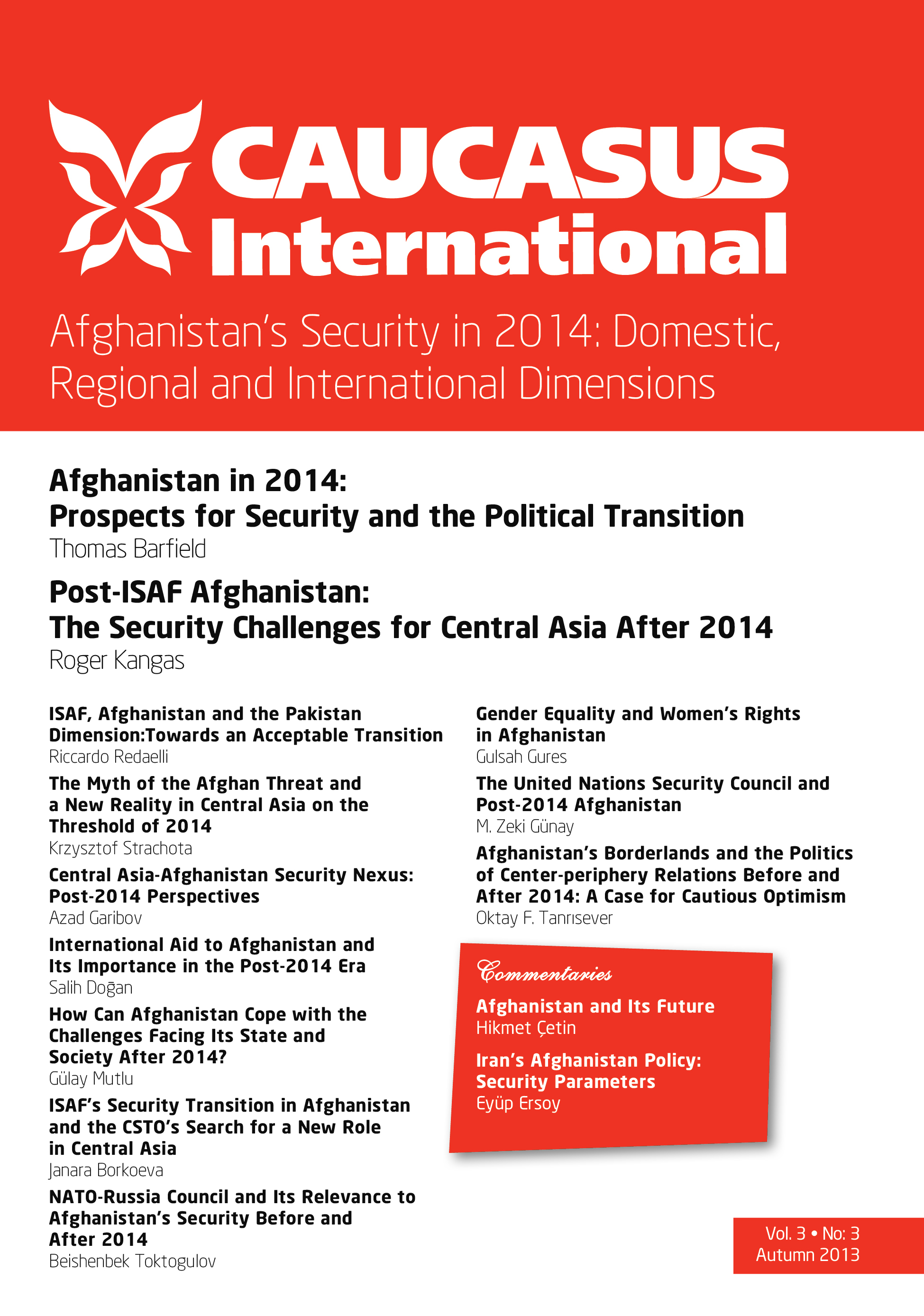The Myth of the Afghan Threat and a New Reality in Central Asia on the Threshold of 2014
The article examines the extent to which Afghanistan constitutes a threat to Central Asia. The conventional thinking on the issue sees the security in Central Asia and Afghanistan as closely associated, and thus suggests that the level of security in Central Asia is directly proportional to the level of security in Afghanistan. This is because the stability in Central Asia is considered to be fragile, both by local politicians and the international community, and the region`s proximity to Afghanistan magnifies this fragility. Thus considering that NATO`s stabilization mission in Afghanistan will be concluded in 2014, entailing the significant reduction of U.S. and allied forces on the ground, this conventional view gives rise to serious concerns. To a certain extent, the fears concerning the developments after 2014 may appear to be reasonable. However, as this article holds, a critical approach towards the assumption of “the Afghan threat to Central Asia,” is fruitful. This approach proposes that Afghanistan did not, does not and will not constitute either a direct strategic threat to Central Asia, nor a reason or necessary condition for destabilization. Based on this thinking, the fears for regional stability are nothing more than “mythological thinking,” a self-fulfilling prophecy, as well as a useful argument misused for the purposes of internal and external policies. Accordingly, the Afghan myth justifies and stimulates the fight against Islamic movements, and further justifies the involvement of external players in the regional security dynamic: hence the presence of Russia in the region, U.S. bases in Kyrgyzstan and Uzbekistan, a French base in Tajikistan and a German base in Uzbekistan. The article concludes by arguing that the Afghan threat in Central Asia is definitely mythologized, overestimated and instrumentalized. However, this not mean that the region is currently or will be stable in the symbolic year of 2014, or that NATO`s withdrawal will remain without consequences for the region.
Latest news
- 03/17/2020 Call for Submission: “Non-Alignment Movement and Its Perspective in International Affairs”. Deadline: 1 July 2020 2624 views
Popular articles
- 02/24/2020 The Role of Irredentism in Russia’s Foreign Policy 2535 views
- 02/24/2020 Construction of sub-national identity vis-à-vis parent state: Gagauz case in Moldova 2218 views
- 02/24/2020 The Conflict in Ukraine - The Geopolitics of Separatism and Divergent Identities (Commentary) 2072 views
- 02/24/2020 The Role of the Soviet Past in Contemporary Georgia 2044 views





